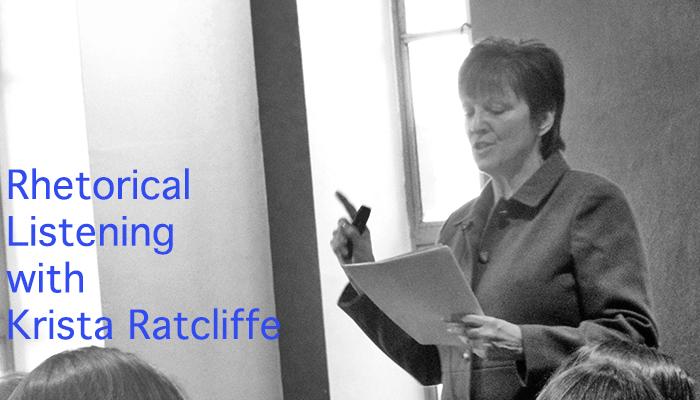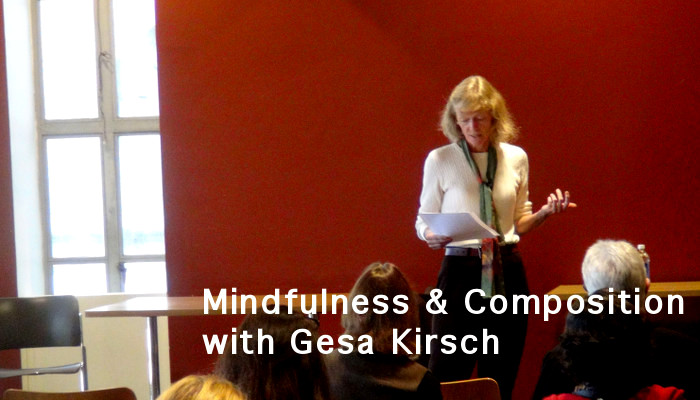I didn’t really want people taking a stance of feeling responsible for racism. We were all born into a system where that preexisted all of us, but to what extent are we accountable for the now?

Krista Ratcliffe presents at the Rhetorical Listening Symposium at Syracuse University, November 13, 2014.
Episode 18 features an interview with Krista Ratcliffe who presented her talk, “Rhetorical Listening: What’s Next?” at the Rhetorical Listening & Composition Colloquium and Workshop Series. In this podcast, Ratcliffe focuses on civic discourse, cultural logics, and how rhetorical listening occurs in the classroom.
To read a PDF of the full transcript, please download it here: Transcript for Episode 18
The music sampled in this podcast is “Horizontal Drift” and “Twinkle Toes Delux” by Jared C Balogh and “Tea Top” by ROW.
Podcast: Play in new window | Download
